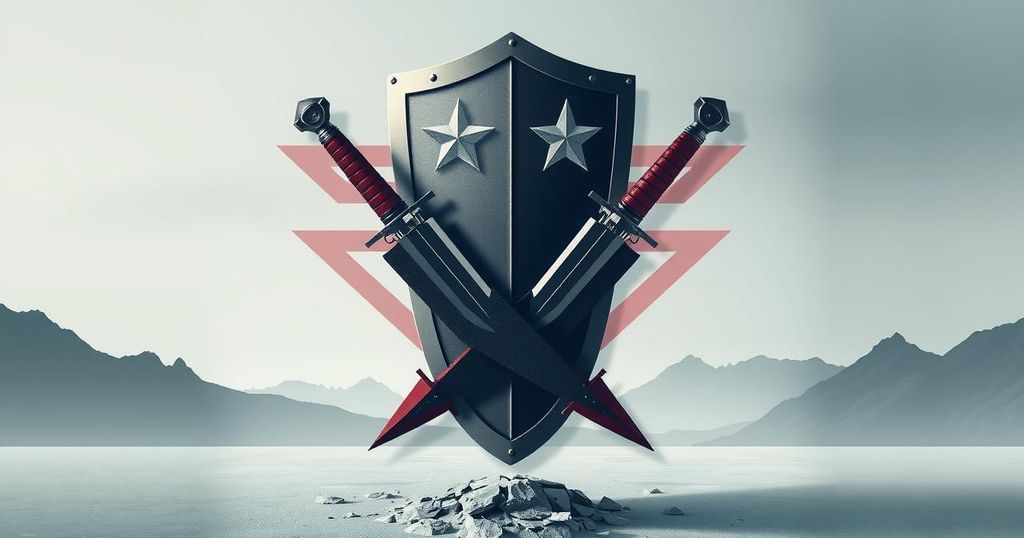Rwandan-backed M23 rebels are advancing in eastern DRC, capturing districts in South Kivu and threatening Bukavu. President Tshisekedi has called for military enlistment among the youth to confront this escalating threat, criticizing international inaction. The crisis has intensified with Goma’s fall, and international scrutiny is mounting as allegations arise concerning Rwanda’s motives related to DRC’s mineral wealth.
Rwandan-backed rebels have made significant advances in eastern Democratic Republic of the Congo (DRC), capturing two districts in South Kivu province, leading towards the provincial capital of Bukavu. Local reports indicate that this movement was unopposed, as fighting was absent during their progress.
In a late address, President Félix Tshisekedi urged the youth of DRC to enroll in the military to confront the escalating rebel threat. He asserted that a strong and coordinated military response is being organized against the advances of the rebels, particularly the M23 group, which has exacerbated tensions in the region.
The M23 rebels, supported by around 4,000 Rwandan troops, have achieved significant territorial gains, including the seizure of Goma, North Kivu’s capital. This marks the largest escalation in violence in DRC since 2012, raising concerns about the conflict spreading further into the Great Lakes region.
President Tshisekedi condemned the perceived inaction of the international community, describing it as a grave affront amid the deteriorating security situation. He stated that the citizens must act as the forefront in defending their country against what he referred to as ‘terrorists’ and their backers.
The presence of Rwandan troops and rising tensions have drawn international scrutiny, with the United States expressing deep concern over DRC’s situation. In response, Rwanda’s foreign representatives maintained that the M23’s actions would persist, suggesting a potential expansion of operations beyond eastern DRC.
Notably, President Tshisekedi rejected participation in an emergency summit intended to address the conflict with the East African Community and called for a strategic approach in building alliances to discuss a resolution.
Amidst this turmoil, the DRC’s rich mineral resources have served as a backdrop to the conflict, with allegations of Rwanda leveraging the situation to gain financially from these valuable assets. Rwanda has consistently refuted these claims, stating that their involvement aims to counteract threats from DRC-based armed groups, particularly the FDLR.
The Democratic Republic of the Congo has faced prolonged instability fueled by conflict involving various militia groups, particularly in the eastern region. The resurgence of the M23 rebel group, allegedly backed by Rwanda, has escalated concerns regarding both human security and international relations in the region. The DRC’s vast mineral wealth shapes the dynamics of conflict, as external involvement often stems from interests in these resources, complicating peace efforts. This ongoing crisis has prompted international responses, with calls for dialogue and cessation of hostilities becoming increasingly urgent.
The recent advances by Rwandan-backed rebels in the DRC highlight the severe security crisis that is developing in the region. President Tshisekedi’s call for military enlistment reflects the gravity of the situation as the DRC prepares to confront escalating tensions. Despite international outcry and diplomatic pressure on Rwanda, the conflict persists, threatening further destabilization and highlighting the need for effective resolution strategies. The intersection of mineral wealth and conflict continues to complicate peace efforts, drawing attention to the geopolitical implications of the crisis.
Original Source: www.theguardian.com




